|
Getting your Trinity Audio player ready...
|
By: Chana Hirschowitz
“What happened?” I asked naively. For the first time, I heard the words “hostages,” “babies,” “a massacre.”
“Are you sure?” I pressed, willing it not to be. It sounded like an echo reminiscent of the rumors Elie Wiesel heard as a child. It was too unbelievable to believe. I didn’t want to believe it. I couldn’t believe it. I still find it hard to believe.
Simchat Torah 5784 will forever be remembered as one of the darkest days in Jewish history.
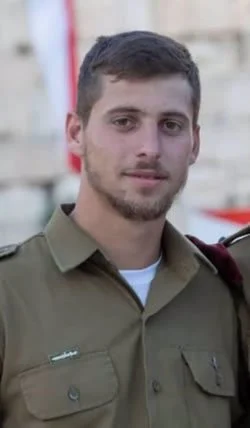
It is a shadow that has pervaded our Jewish consciousness. It has woken us up from our apathy, from our innocence. It has pushed us to reflect, to be more active, more Jewish.
In many ways, this story is very personal to me. It’s a story of my deep personal quest to feel some concrete relief, to find answers, to understand the pain in my soul. Why was I hurting so deeply? I had never met Ariel Bibas, nor a single precious soldier that has fallen in the past year. Yet, I cried at funerals like it was my own family member who had fallen. I needed to understand how and why.
How can you love and miss people you have never laid eyes on?
Intellectually, I’d always known that the Jewish people are one spiritual, interconnected body, but my travels over the past year—in Israel and along “the Hummus Trail,” the Eastern routes that many young Israelis travel after they complete their military service—have shown me just how real, how strong, and how unbreakable our connection is.
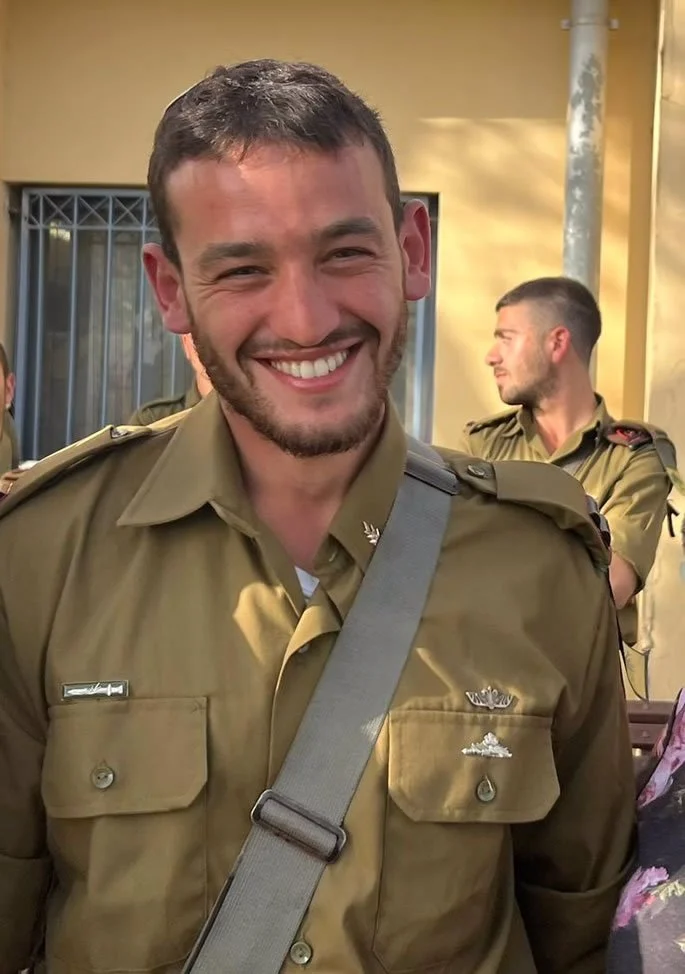
Chanukah in Gaza
In Laos, I meet Raz Barabi, a fearless, strong soldier with the Duvdevan Unit, a traditional, not-typically-observant Jew with a heart of gold. He reminisces, taking us back to the war zone, to the deafening explosions, to the ever-present Angel of Death. “It was one of those moments whose spiritual weight was impossible to ignore,” he tells us. “It revived me, ignited my belief, reminded me why we are here, why we are fighting.”
I know I am about to hear a gem.
“It was Chanukah,” he continues. “We were stationed in a house in Jabalia, in northern Gaza. Soldiers in my unit wanted to light the Chanukah candles, but it was dangerous—the lights could have exposed us. Any movement could have unmasked our hiding spot. But it was Chanukah.
“And so, we masked all the windows, huddled in a corner and lit the same candles that have been lit by Jews for thousands of years. We sang the same songs as the Jews did in the barracks, in the shtetl, in all corners of the world in all kinds of dangerous situations. Here we were in Gaza, in a place darker than most, fighting for our people, not only physically, but with the power of the lights.”
I look at Raz and realize he is no longer here; he has been transported to that moment, and his vivid descriptions have taken me with him.

“There was no feeling like it. A simple light, in the deafening darkness. It reminded me why I was fighting; it gave me the strength to push forward.”
A simple story in the most complex of circumstances. It wasn’t even his words that moved me, but his tone. At the moment of lighting the candles, he had an undeniable clarity. He saw the spiritual makeup of this world through the obvious G‑dly energy that each of us carries within. It was a moment the likes of which every Jew yearns to experience. A moment that reminds us who we are, why we are fighting and what we stand for.
Friends Comforting Friends
I’ve just landed in Hoi An, Vietnam, when I overhear Matan Sussman asking a pair of friends he has clearly just met, “Is that a picture of Aloush on your phone case?”
“Yes, he’s our friend from home,” the two friends respond.
“I was with him in Gaza the night that he fell,” says Matan quietly. His new friends are taken aback, somber but curious, and come to sit closer. There is a lot of Hebrew, a lot of army talk, but I sit and watch as two men listen to the events leading up to the death of their childhood friend, Liav Aloush who served in Tzevet 100, the most elite team of the Duvdevan Unit.
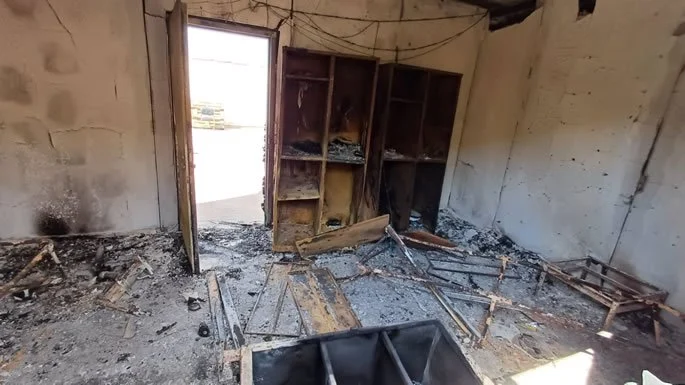
I don’t understand all the details, but I gather that there were terrorists, explosions, and lots of gunfire. “Everything that could have gone wrong, went wrong,” said Matan sorrowfully.
These are young, ordinary people, on vacation in Vietnam, yet the horrors they have witnessed are indescribable. But the conversation doesn’t end there; soon the somber talk transforms into smiles and laughter, as one calls out “Achla Aloush,” slang for “Incredible Aloush,” and they segue into reminiscing about the life he lived, the joys they experienced together in their short lives.
How did they laugh and smile? I wondered. How did they live their ordinary lives after all the pain they had witnessed? What did I even experience in life living in a small, quaint, war-free town in Sydney? What gave me the right to feel the pain too? I wasn’t there; I had never met Aloush.
“I didn’t tell them all the details,” Matan tells me later that Friday night in the Chabad House. It had been twenty-four hours since I had witnessed the encounter and I didn’t sleep well the night before. I dreamt of the war zone, the chaos and the sounds, and of course, the face of Aloush that had been imprinted on my mind from the sticker on the phone case.
Later, I see the two friends of Aloush sitting with Matan, drinking a beer. They had only met 48 hours ago, but they shared a story. They shared Aloush.
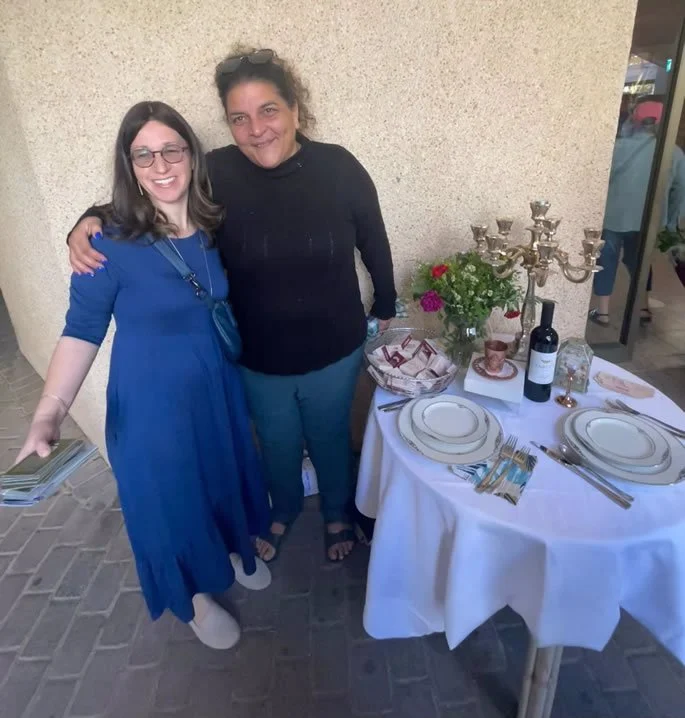
Remembering Shilo on Tisha B’Av
Tisha B’Av is almost upon us. We are on the road, cooking last-minute couscous in a parking lot with eggs we picked up at the local market. We pack up and then I remember: Tonight is Shilo’s birthday.
I was first introduced to Shilo Rauchberger through a copper bracelet worn by two of his friends. “What is written on the bracelet?” I asked innocently. “Learn to look at the good and celebrate it,” they explained.
Who was he, and why did he inspire this bracelet, of all things?
When I sat down to write this article, I finally got the courage to call his three best friends, Nadav, Matan, and Beeri, to ask, to know more; for me, for you, to remember those who have sacrificed their lives for us.
The first thing Matan describes is what Shilo was wearing when they first met in ninth grade. “He was wearing one of those camp shirts, like the merch they give you in B’nei Akiva, cut around the neck. He loved those shirts,” he reminisces, “He always wore them.”
I look down at my shirt; there is Hebrew scribbled on the front and on the back. “I love those shirts, too,” I think to myself.
I try to imagine losing my best friend from high school. I shudder.
“How do you do it?” I ask in desperation, like there is some secret formula to overcoming the incessant tragedy that has been suffocating us the past 365 days.
“I have comfort knowing that he fought for Am Yisrael until the very end; that’s the only way Shilo would have done it. He would do anything to protect his soldiers, his people, his land—our land,” says Matan with conviction.
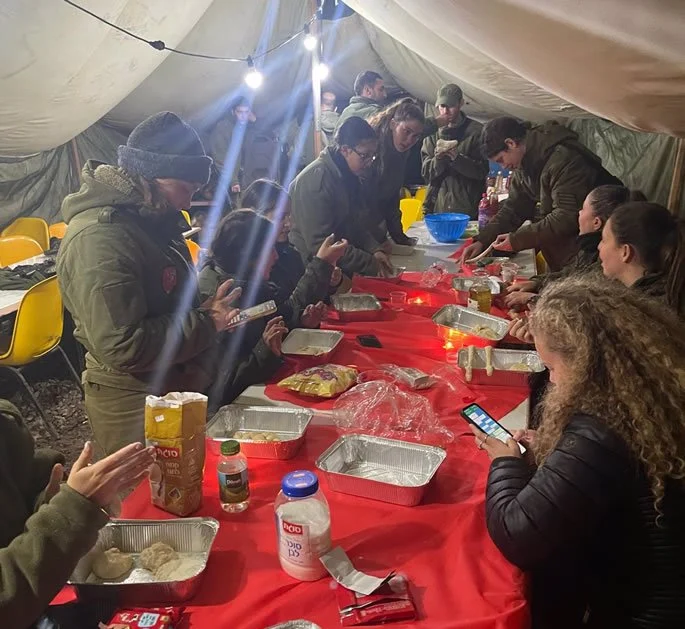
Shilo Rauchberger was born in Eli on Tisha B’Av 2000 to Dudi and Nirit. He was one of seven children. “He always had a smile on his face. This photo is classic Shilo,” he says, as he sends me the photo that I have included in this article.
Shilo was a commander in the Golani Brigade 51 for Yeshivat Hesder, serving on the Southern R&D outpost on the Gaza border. He passed up the opportunity to be an elite officer with the Special Unit Egoz to be able to inspire people from all different parts of Israeli society in the Golani Brigade, not just those in the special units. “That was Shilo,” Matan explains, “he wasn’t authoritarian, yet his soldiers performed better than every other unit. They simply loved and respected him.”
I don’t want to ask about his final day. My usual talkative, curious self has lost the ability to ask such questions. But he doesn’t wait for me to ask. “It was Simchat Torah. Shilo had organized for a rabbi to come and spend the holiday on base. When the sirens went off in the early hours, dressed in one of his well-loved merch t-shirts, he assembled all his soldiers at the safe room in the mess hall. Shilo stood there, holding the door, as a barrage of grenades, bullets, and shouts of Arabic rained down on them. Devoted to his troops until the very end, Shilo stood firmly by the door despite being badly hit by shrapnel. When he couldn’t stand any longer, he lay down, continuing to direct commands to his soldiers to protect the base, until his holy soul left this world. Not a single terrorist managed to get past the base into civilian territory. The majority of the southern kibbutzim and moshavim on the Gaza border had been saved. But what a price we paid.”
A Shabbat Stand in Kibbutz Eilot
I’m sitting at a coffee shop in Pai, Thailand, when I overhear a father and his three daughters mentioning that they are from Kibbutz Eilot.
“Kibbutz Eilot?!” I chime in. “I spent every Friday running a Shabbat booth there, for five months,” I babble excitedly.
“With Danielle?” they ask, with equal excitement.
Immediately, they take out a phone and we send Danielle a video. Danielle runs the weekly Friday market in a Kibbutz right outside of Eilat.
How did the Shabbat booth come to be?
“A little before Chanukah we got a call,” recalls Rebbetzin Chanie Klein, Chabad emissary to Eilat and honestly the most incredible woman I have ever met. “The caller explained that Kibbutz Eilot was searching for something more after the trauma of the October 7 Simchat Torah attacks, and asked if Chabad of Eilat would be interested in opening up a stand in their Friday fair.
“I could never have anticipated this,” exclaimed Chanie excitedly. “A secular Kibbutz reaching out for a Shabbat stand in their local Friday fair? It was a modern-day miracle.”
Chanie brought her very own silver candlesticks to place at the center of our booth, and for the next five months we gave out Shabbat candles every Friday by the thousands. On my final Friday, I received a job offer to work at the local kibbutz, free earrings from the stand next to us, and lots of tearful goodbye hugs and kisses.
Baking Challah on the Battlefield
“Chana, will you come back and bake challah with us?” asked Shira, a soldier I had met only moments earlier at a BBQ at a base in the Golan.
“Sure,” I agreed, without missing a beat. I am Chabad after all.
But I was leaving for Australia in two days. “How about tomorrow?” I heard myself say.
Honestly, I had never felt particularly connected to baking challah. It felt like a chore. But since the attacks, it feels like a lifeline. I need it, I crave it: Women coming together, baking bread, generation after generation. The power of prayer and the mystical energy that is undeniably palpable—there is nothing like it. We have laughed together, we have cried together, I have traveled to bases all over Israel for it. Not for them—for me. It’s my much-needed spiritual therapy.
“Wait, do you have an oven on your base?” I asked Shira. I knew the answer would be negative. I had seen the base. It was in a muddy field with no electricity. There wasn’t even a concrete floor there; my shoes had been swallowed by mud. I had to find a solution.
“I have a strange question,” I stuttered on the phone to a random hotel in nearby Moshav Keshet. “Do you by any chance have an oven I can borrow for an hour? I am trying to run a challah bake for soldiers in a base close by.”
“We are closed because of the war,” said the woman on the other line, “but let me send you three numbers of families on the Moshav. I’m sure you can use their home ovens.” Her response was so calm and nonchalant, it was as if I had asked her what her last name was. Obviously, a random Australian girl on the phone can come and use a private oven, in a personal home, no questions asked.
Only in Israel.
Sure enough, one of the people I reached referred me to another family who owned a bigger oven. And so, after completing one of the most memorable challah bakes—in a tent, on an artillery base, in a field in the Golan Heights, in our indigenous homeland—we arrive at Sheri’s house at 10:00 p.m. to drop off trays of challahs to bake in her very roomy oven.
“No problem; I’ll drop it off at the base in the morning,” she tells us.
Now it’s 11:00 p.m., we have a four-hour drive back to the center and I have a flight to Australia the next morning. I carry the holy, dry mud on my shoes, from our homeland, from the base in the Golan, all the way to Australia.




